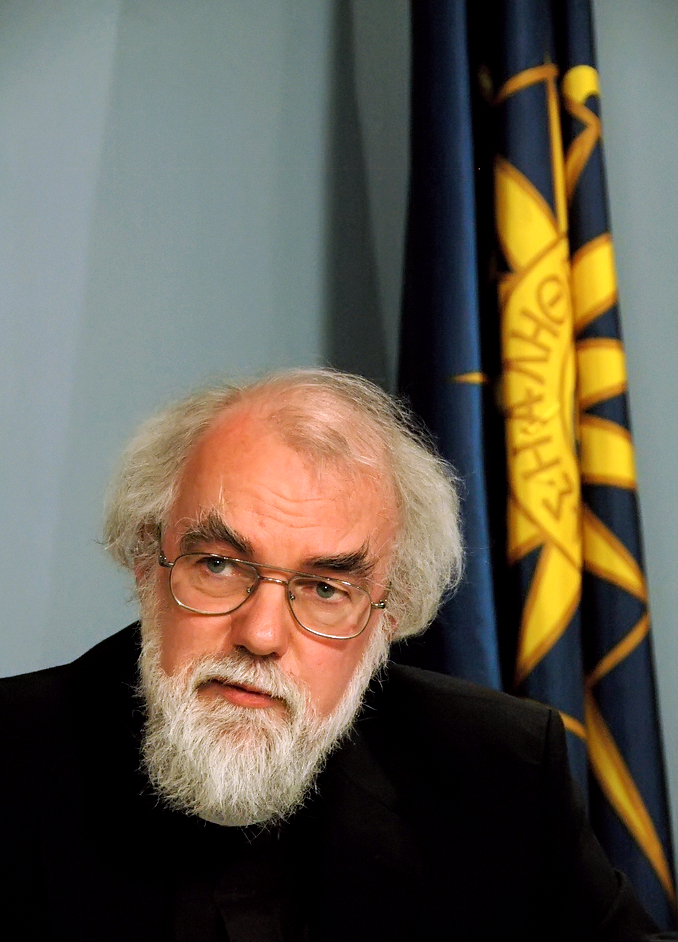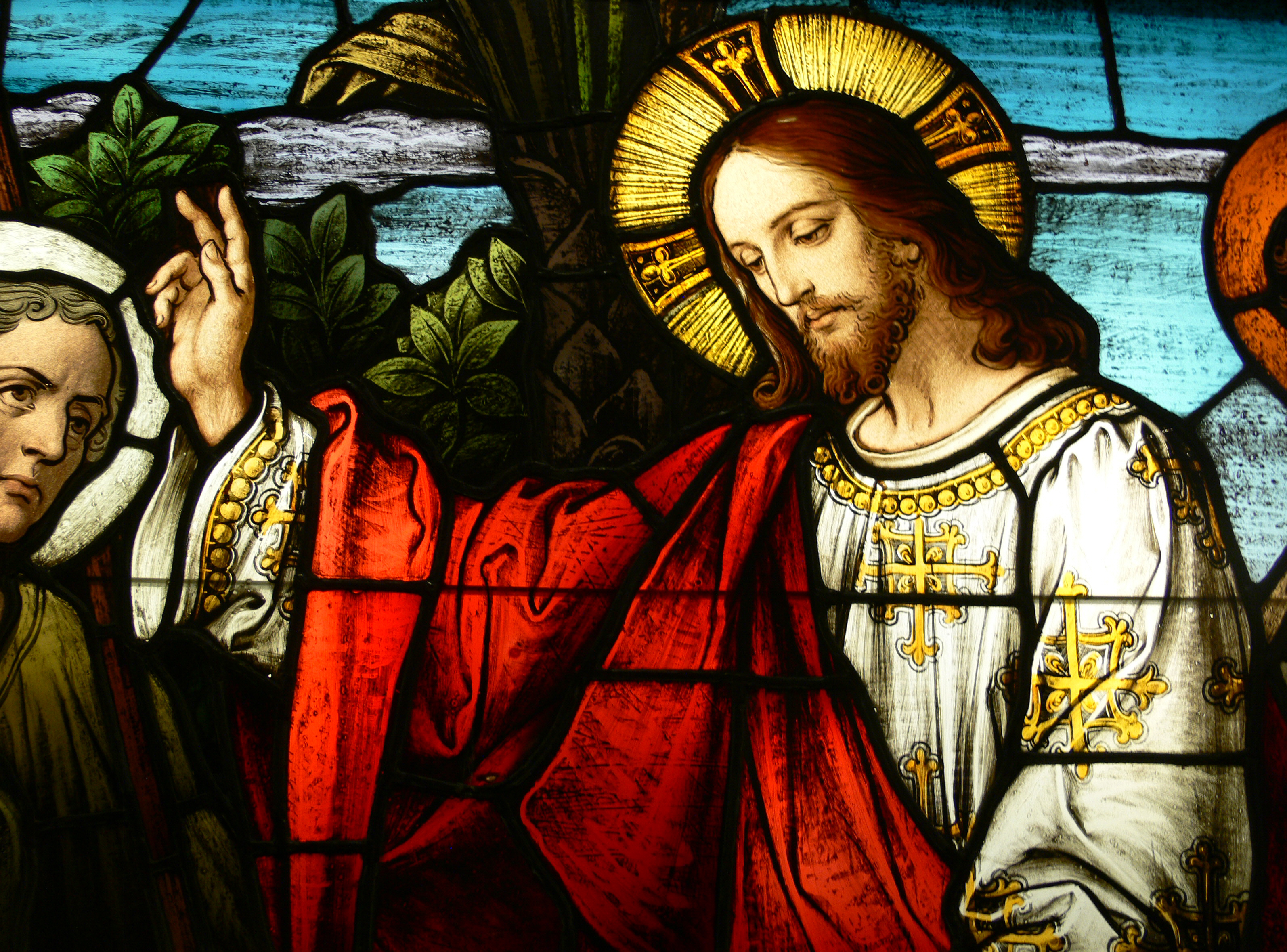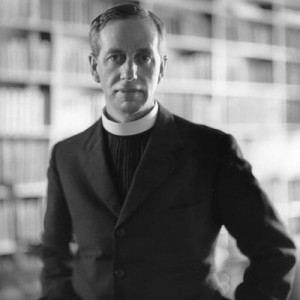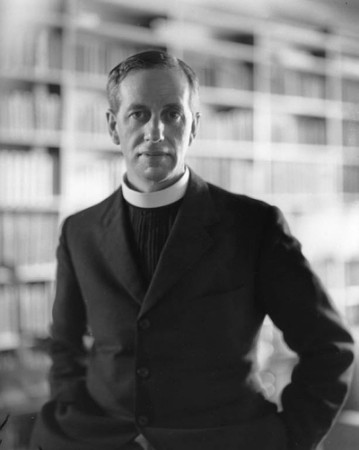The Anglican Communion is famous (perhaps notorious) for wanting to prevent internal schism at any seemingly cost — even if that means jettisoning doctrines, or permitting things, like the ordination of women and practicing homosexuals, that they once firmly denounced.
Back in 1914, to show the peril of this approach, an Anglican priest by the name of Ronald Knox wrote a parody called Reunion All Round, envisioning a future Church of England that would be acceptable to Catholics, Jews, Muslims, and atheists. Knox joking proposed the creation of a “Symphorodox Church” that, rather than eradicating heresies for the sake of orthodoxy, embraced them, operating under the principle that “all heresies and schisms are the very condition of Christian unity.”
Without quoting the whole thing, here’s how Knox proposes handling the incorporation of atheists within the Symphorodox Church:
Msgr. Ronald Knox The differences at present existing between the various persons who believe in a God being thus happily ended, we should be the more free, finally, to consider the problem of reunion with the atheists.
And here it is to be noticed, that whereas the sectaries of one religion differ from those of another over a whole multitude of points, as niceties of ritual, quibbles of doctrine, forms and postures in the recitation of prayer, etc.; in the case of the atheists we have only one single quarrel to patch up, namely, as to whether any God exists or not. If we could but ease their consciences on this matter, it is clear they would have no difficulty in accepting our forms and fashions of worship, having no inherited prejudice in favour of any other. There would be no straining at gnats, if they could but be brought to swallow the camel. I submit it, therefore, with all deference to our theologians, whether they could not find it possible to allow, that as God is immanent and yet transcendent so we cannot see the whole truth, but only an aspect of the truth, until we have reconciled ourselves to the last final Antinomy, that God is both existent and non-existent?We, who are conscious of the supreme being as existent, and those others who are conscious of Him as non existent, are each of us looking at only one half of the truth, one side, as it were, of the shield; and we can surely hope that when we have studied each other’s points of view, and come to understand them a little better, by common discussion and common worship, we shall all of us recognize the Divine Governor of the Universe as One who exists, yet does not exist, causes sin, yet hates it, hates it, yet does not punish it, and promises us in Heaven a happiness, which we shall not have any consciousness to enjoy.
 |
| Outgoing Archbishop of Canterbury, Rowan Williams |
In 1914, I have no doubt that such absurd satire was hilarious. Today, I’m not sure it would even be recognized as satire. Incredibly, this isn’t satire, but an article from yesterday’s Telegraph:
Having wrestled with the best way to choose a new leader, the Church of England has decided to use the social networking site Twitter. It will also seek the views of people of all faiths and none, from the Chief Rabbi to Professor Richard Dawkins.
h/t Brandon Vogt, who responded: “Somehow I don’t think this is how ‘apostolic succession’ was supposed to work.” Indeed. A church reduced to asking atheists who should lead it deserves the answer it gets.
What matter, whether two and two be four.
So long as none account them to be more?
What difference, whether black be black or white,
If no officious Hand turn on the Light?
Whether our Fact be Fact, no Man can know.
But, Heav’n preferve us, we will treat it so.
Finally, consider the famous scene from Matthew 16:13-15,
When Jesus came to the region of Caesarea Philippi, he asked his disciples, “Who do people say the Son of Man is?” They replied, “Some say John the Baptist; others say Elijah; and still others, Jeremiah or one of the prophets.”
“But what about you?” he asked. “Who do you say I am?”
 |
| Commission to Peter (detail), Cathedral of Our Lady of the Angels (1920s) |
Look at that response. Christ isn’t satisfied with simply polling the masses (who, by the way, misunderstand who He is). He expects the Apostles to be leaders: to not simply follow the masses, but to lead them as shepherds. And as the remainder of the passage (Mt. 16:16-19) makes clear, one Apostle does this, by the grace of God.
Anglican leadership today seems to have missed this message. Fr. Knox did not. We recall him today as Msgr. Ronald Knox, one of the finest Catholic apologists and authors of the twentieth century.
P.S. Speaking of ecumenism, there’s an event going on at Wheaton tonight that sounds very promising: a dialogue between Evangelical author and former pastor John Armstrong, and Francis Cardinal George. I love and respect both men immensely, and look forward to hearing what they have to say on “A Conversation on Unity in Christ’s Mission.” You can watch it live tonight at 7 P.M. Central.
P.P.S. Happy Solemnity of the Annunciation! If you want, here’s an Annunciation-related post from last year about answering pro-choice Christians.


Great post. I wasn’t familiar with those Knox writings though I’ve read of his other work.
I wish I could attend that Conversation in Chicago tonight. In addition to Cardinal George I was told that Fr. Robert Barron will be attending, too. Looks to be a great Catholic presence for this important dialogue.
The worship of democracy claims another victim. So sad.
While the Roman Catholic Church should not appease the masses as you’ve shown some Anglican leaders do, I must respectfully submit that the Church must do more to consider and dialog on the values and beliefs that the majority of ‘Catholics’ hold.
While I believe much of the values and beliefs that such ‘catholics’ hold are derived from a lack of education or understanding, there are legitimate grevancies with they way the Catholic hierarchy has handled some issues and questions of faith in recent history (in fact, throughout history). To steadfastly cling to old traditions as “truth” or as unchanging dogma is a recipie for further schisms which should be avoided (but never ‘at all costs’). Too many young conservative ‘orthodox’ Catholics seem to give off the message and ‘vibe’ that it’s “my way or the highway.” This is not loving and is not the best way to evagelize and educate.
There was a book of self-lampooning Anglican poetry, of which I remember a few lines that seem apropos:
“I fed him [my pet ecumenist] all the acts of Convocation
to stimulate the art of ecumeniquivocation.”
And then this one:
‘It diddles the devil, we know,
And baffles his sinister ends.
He cannot tell if he’s foe
Or one of our intimate friends.”
Thank God for the Anglican Ordinariate.
Kipp,
I wonder if you couldn’t be a bit more specific? It’s true that we should have unity around those things that are true, and greater flexibility around those things that are merely prudential. But I can’t tell if you’re attacking dogmatic adherence to disciplines, or attacking dogmatic adherence to actual dogmas.
I.X.,
Joe
aside: goodness gracious what a masterful request for clarification. the man has skills. can anyone deny that?
When I was an Anglican seminarian (I am now, blessedly, a Roman Catholic priest) we satirized our own “bishops” using the very passage you cited from the Gospel of Matthew.
“Who do you say that I am?”
Anglican bishop’s response: “Thou art, metaphorically at least, or archetypically, so to speak — and without in any way intending to exclude the paths of wisdom of all our sisters and brothers in myriads of other so, so valuable and illuminating spiritual traditions — Errr — Thou art an eschatological manifestation of the Ground of Being. Yes, there you are!”
Please tell me that you made up that quote from the Telegraph! I hope that this whole thing dies and dies fast. Please pray that the Mainline Protestant churches do not turn down this way too.
If you want a good Knox like laugh, watch this YouTube of Williams:
http://atonementparish.blogspot.com/2012/03/in-honour-of-rowan.html
Nice post. I’ve linked to it on our blog (ronaldknoxsociety.blogspot.com) and Facebook page (facebook.com/groups/162265460552199)
Best wishes,
Vicki McCaffrey
Pres., Ronald Knox Society